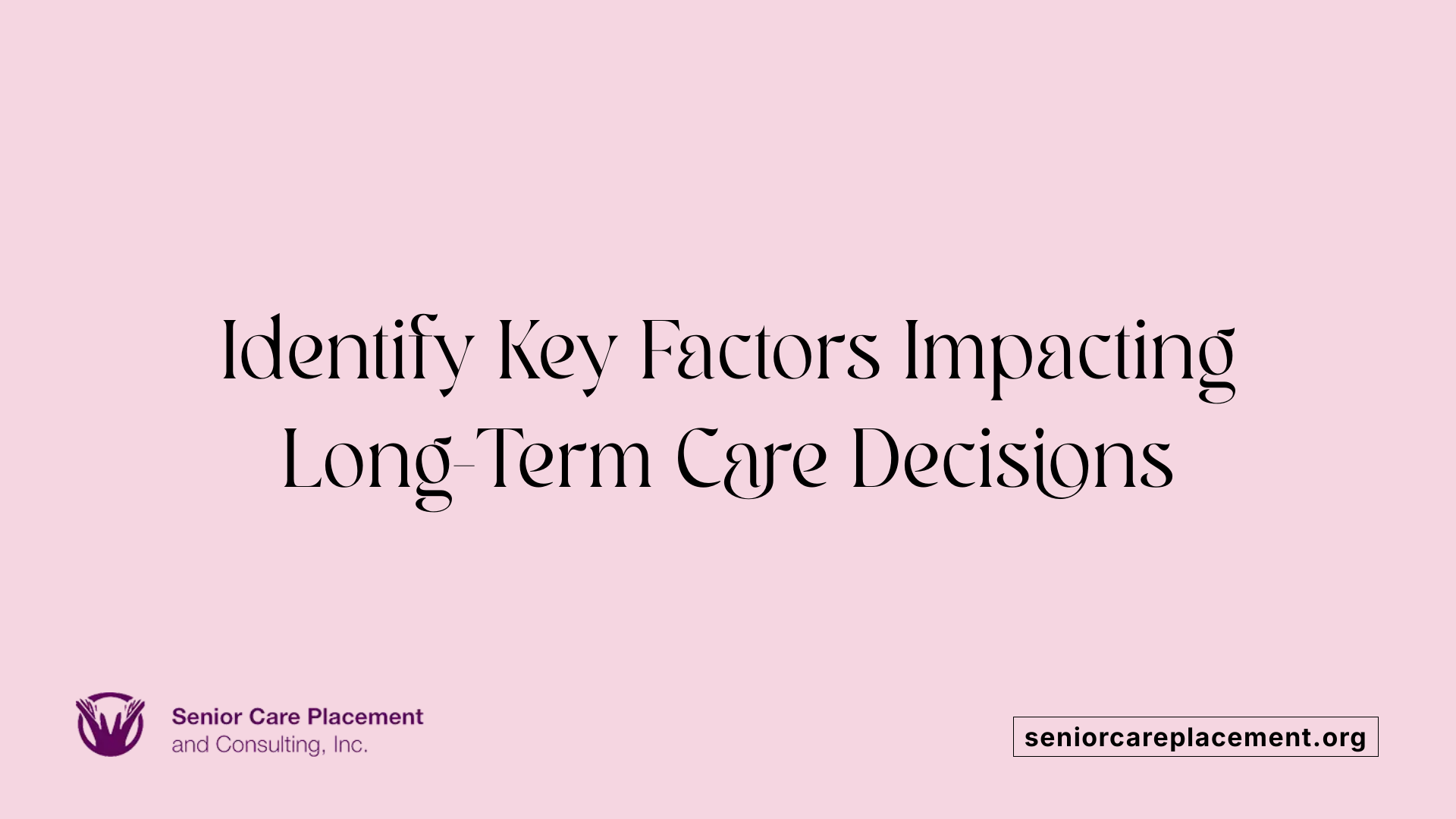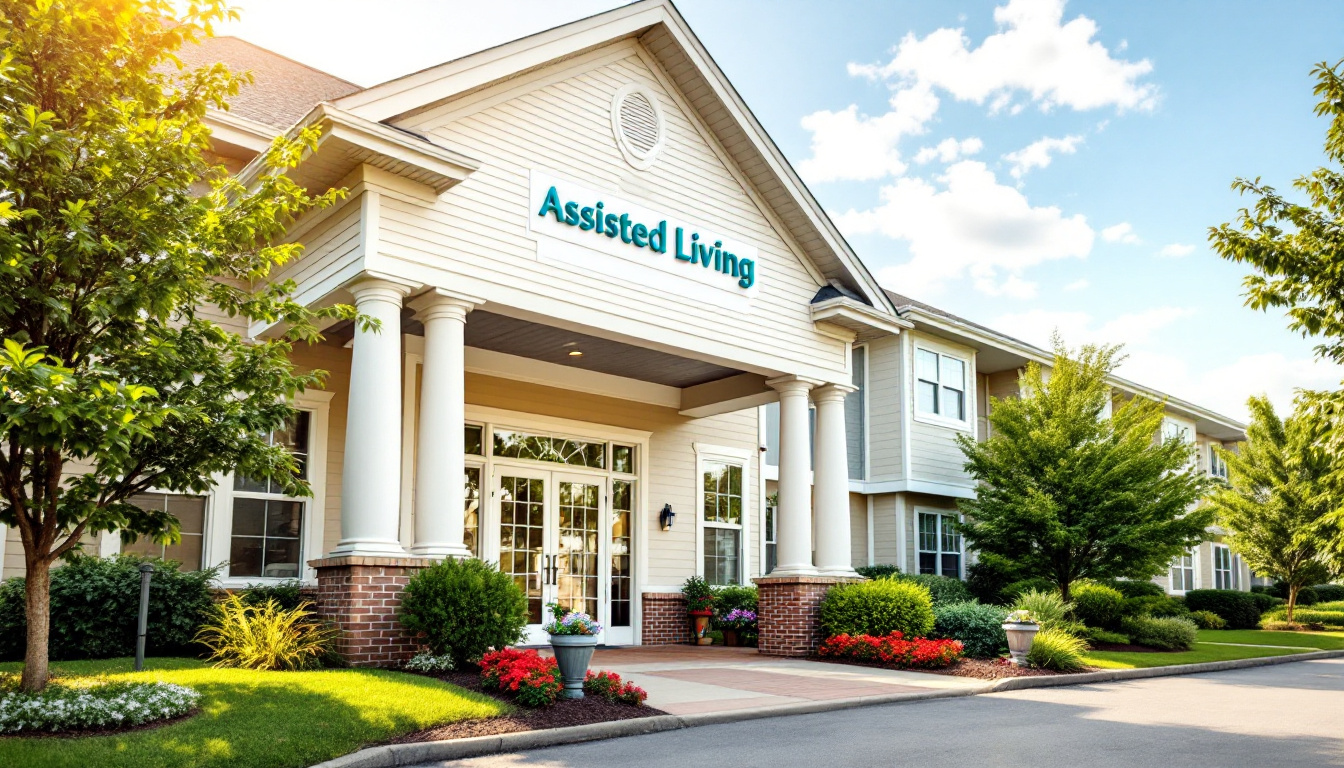How to Plan for Future Care Needs with Senior Care Placement Agencies
Navigating Senior Care: A Guide to Long-term Care Planning and Placement

Introduction to Senior Care Planning
As our loved ones age, planning for their future care becomes an essential task that many families face. Yet the complexities surrounding senior care—from assessing individual needs to exploring financial, legal, and emotional aspects—can be overwhelming without proper guidance. Senior care placement agencies offer invaluable support, streamlining these processes and helping families make informed decisions. This article aims to provide a comprehensive overview of planning for future care needs with these agencies, while addressing common concerns and questions.
Understanding the Care Planning Process

What are the stages involved in the care planning process?
The care planning process consists of four main stages: Assessment, Planning, Implementation, and Evaluation. This structured approach ensures that each older adult's needs and preferences are thoroughly addressed and modified as necessary.
Assessment: In this initial stage, comprehensive information about the elderly individual is gathered, focusing on their health status, daily living activities, and social interactions. Collaboration with the individual and their caregivers is crucial to fully understand their unique circumstances.
Planning: Here, specific care goals are created based on the assessment. Utilizing the SMART framework ensures these goals are Specific, Measurable, Achievable, Realistic, and Time-framed, allowing for clarity and focus in the care strategy.
Implementation: This stage involves putting the developed care plan into action. Care responsibilities are delegated among family members, professional caregivers, and healthcare providers, emphasizing the importance of effective communication.
Evaluation: Finally, this stage assesses the plan's effectiveness in meeting the senior's needs. Regular reviews help identify necessary adjustments, ensuring the care plan remains relevant and effective over time.
Effective communication and family involvement are fundamental throughout these stages. Engaging all parties in discussions about the care plan enhances understanding and cooperative execution of responsibilities, fostering a supportive environment for the senior.
In-home Care Options for Seniors

What are the options for in-home care for the elderly?
In-home care options for seniors are vital in providing the support they need to live independently. Services typically include:
- Personal Care Assistance: Help with bathing, dressing, grooming, and other daily routines.
- Household Maintenance: Assistance with meal preparation, laundry, and shopping.
- Home Health Care: Skilled medical support such as medication management, wound care, and physical therapy.
- Respite Care: Short-term relief for family caregivers, ensuring that seniors receive care while their primary caregiver takes a needed break.
- Transportation Services: Support for seniors to attend medical appointments or social activities.
- Meal Delivery Programs: Services that provide nutritious meals right to seniors' homes.
- Home Modifications: Adjustments made to the living environment to enhance safety and accessibility.
Medicare's role and coverage
Medicare plays a significant role in supporting some home health needs, particularly when it comes to skilled nursing services. However, it’s important to note that Medicare coverage is limited:
| Service Type | Medicare Coverage | Notes |
|---|---|---|
| Personal Care Assistance | Generally not covered | Medicare does not cover non-medical personal care. |
| Home Health Care | Covered if deemed medically necessary | Must be prescribed by a doctor and provided by a Medicare-certified agency. |
| Respite Care | Limited coverage | Available under specific conditions; primarily focuses on adult day care. |
| Medical Supplies | Covered under certain conditions | Includes items for home use, like wheelchairs and other assistive devices. |
In summary, while there are many in-home care options available, understanding Medicare's role is crucial for seniors and their families to navigate affordability and coverage for necessary services.
Creating a Comprehensive Senior Care Plan

Steps to develop a care plan
Creating a care plan for the elderly involves several important steps to ensure comprehensive support tailored to their needs. Start by assessing your loved one’s needs in areas such as:
- Physical health: Identify medical conditions and necessary treatments.
- Mental health: Understand emotional and cognitive needs.
- Daily living activities: Recognize any difficulties with tasks like bathing, dressing, and eating.
- Safety at home: Evaluate living conditions for potential hazards and implement necessary modifications.
Communication is key. Engage in open discussions with family about care priorities, financial resources, and potential health changes. Assemble a caregiving team that includes family members and healthcare providers to ensure consistent support and respite for primary caregivers. Include essential information in the care plan, such as:
- Contact details for medical providers
- A care schedule
- Medication management instructions
Importance of regular updates
Regularly updating the care plan is crucial to accommodate your loved one’s changing health needs and preferences. This ensures that the care provided remains effective and relevant. Periodically review:
- Progress regarding medical conditions or daily living tasks
- Available support from family and other caregivers
- Financial resources and potential insurance options that could impact care decisions
By keeping the plan dynamic, you can proactively manage care and alleviate some of the financial burdens associated with aging. Incorporating flexibility allows for timely responses to any new challenges and enhances the overall quality of life for your loved one.
The Role of Senior Care Placement Agencies

Services Offered by Placement Agencies
Senior care placement agencies specialize in helping families navigate the complex world of elder care. They provide a range of services, including:
- Assessment Services: Evaluating the specific needs of seniors to match them with appropriate care options.
- Advice on Care Options: Offering detailed insights about different types of care, such as independent living, assisted living, and specialized memory care.
- Coordinating Facilities Tours: Arranging visits to various senior living communities to help families make informed decisions.
- Financial Guidance: Providing information on costs, potential funding sources, and financial planning to ease the burden of care expenses.
- Continuity of Care: Ensuring that care transitions are handled smoothly, allowing for adjustments in care as needs change.
Benefits of Using Placement Agencies
Utilizing a senior care placement agency has several significant advantages:
- Expertise and Knowledge: These agencies possess specialized knowledge of local resources and communities, helping families avoid feeling overwhelmed.
- Time Savings: Families save time and effort by having professionals curate a list of suitable facilities based on the senior's needs.
- Personalized Support: Tailored recommendations ensure that placement options align with the senior’s lifestyle preferences.
- Emotional Comfort: Agencies can alleviate the stress associated with caregiving by acting as intermediaries in difficult conversations about care needs.
Placement agencies serve as invaluable resources, significantly simplifying the senior care search process.
Factors Influencing Long-term Care Placement

What factors are associated with the need for long-term care placement?
Factors associated with the need for long-term care (LTC) placement are multifaceted. They include:
- Predisposing Characteristics: These involve age, gender, educational level, and marital status. Typically, older adults, particularly those aged 70 and above, with greater care needs tend to seek formal support.
- Enabling Factors: Financial resources are crucial. Individuals with means are more empowered to access various care options, while those with limited funds may face constraints.
- Psychosocial Factors: Intergenerational relationships greatly influence care decisions. Older adults with strong family ties often prefer care from family members. Conversely, limited connections incline them towards institutional care facilities.
How do psychosocial aspects affect long-term care choices?
Psychosocial factors such as self-image significantly affect placement decisions. Studies illustrate that older adults who maintain a positive self-view and experience fewer unmet care needs often opt for familial care. In contrast, those feeling isolated or lacking strong familial bonds are more likely to utilize formal care services.
Thus, understanding these influencing factors is essential to tailoring long-term care services effectively. Addressing both physical and emotional needs can lead to better outcomes for older adults as they navigate their care options.
Conclusion: Proactive Steps Towards Future Care
Planning for future care needs is a multifaceted undertaking that requires thoughtful consideration of many variables. Senior care placement agencies serve as pivotal resources, aiding families in navigating the myriad of choices and considerations involved. With a well-structured plan in place, the process of ensuring a loved one’s care becomes less daunting and more manageable, fostering better outcomes and peace of mind. By taking proactive steps today, families can secure the well-being of their elderly relatives and make informed decisions about their future living arrangements and care options.
References
- Guide to Creating a Senior Care Plan - A Place for Mom
- Planning for Your Future Care in 5 Steps - WesleyLife
- Five Steps To Prepare For Long-Term Care | Assisted Living Locators
- How to Create a Senior Care Plan | Navigate Wellness
- Seven Key Tips for Planning Elder Care
- Senior Care Planning: Why You Should Start Early | HumanGood
- Creating Your Senior Care Plan | Cascade Living Group





































































































